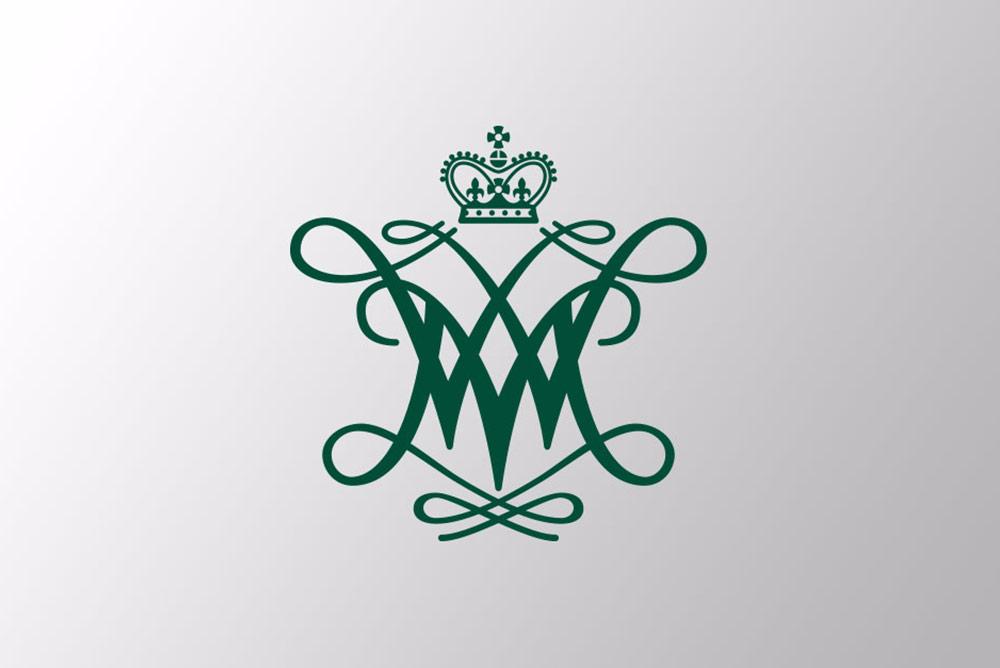Past Events
Online Privacy & Safety Workshop
Date: Wednesday, February 26th | Time: 3:30 - 5:00 pm
A three-part workshop on online safety and privacy.
- Reid Pierce, 1st year PhD student in American Studies & Equality Lab Fellow, will share tips for online safety as a student and online researcher.
- Elizabeth Losh, Dittman Professor of English & American Studies, will share strategies for responding to trolling/doxxing.
- Th
Location: Grimsley Board Room, Blow 201
Startup Citizens: Radical Reinventions of Democracy and Technology
Date: Saturday, March 30th 2024 | Time: 9:00 am - 5:30 pm
A series of conversations with experts on the regulation of technology, citizen journalism, digital storytelling, and online activism.
Panels:
9:00 am- Laws, Norms, and Platforms. Margaret Hu (William & 玛丽), Siva Vaidhyanathan (University of Virginia), Katrin Tiidenberg (Tallinn University).
11:00 am- Access, Surveillance, and Participation. micha cárdenas (UC Santa Cruz), Annemarie Perez (CSU Dominguez Hills), Elizabeth Ellcessor (University of Virginia).
2:00 pm- Vulnerability, Identity, and Digital Personae. Jessika Hardy (Vice, Refinery 29), Annie Segarra (YouTuber, artist, and activist for LGBT and disability rights), Joseph Lawless (William & 玛丽), and Alicia Andrzejewski (William & 玛丽).
4:00 pm- Magic, Alchemy, and Resistance. Ashleigh Greene-Wade (University of Virginia), Lily Kunda (University of Texas, Austin and William & 玛丽), Ravynn Stringfield (University of Richmond).
Virtual Symposium: Museums in Times of Crisis
March 26 | 12-3 pm ET | Virtual
The global pandemic has changed how many of us do a lot of things: from going to school, to caring for children, to working. Negotiating between a crisis in public health and a new wave of social unrest, cultural institutions, including museums, have had to adapt to radically new circumstances. This virtual symposium explores the different strategies that museums and museum professionals have embraced during these complex times. Some museums have used social media and virtual conferencing to engage new audiences and forge new institutional collaborations, while others have reimagined their gallery spaces in response to precarity stemming from decreased attendance and revenue. Still other professionals and activists have continued their work of decolonizing museums and challenging white supremacy within institutions that have proven to be, at best, reluctant to change. Join us for this special roundtable event as we share different projects and discuss the potential futures of museums.
Schedule of Events
Roundtable 1: On Decolonization (12-1 pm ET)
Brandie Macdonald, Director of Decolonizing Initiatives at the Museum of Us, San Diego
Debra Yepa-Pappan, Community Engagement Coordinator for the Native American Exhibition Hall at the Field Museum of Natural History, Chicago
Jordan Cocker, Curatorial Scholar of Native American Art at the Gilmore Museum, Tulsa
Roundtable 2: On Access and Precarity (1-2 pm ET)
Christina Vassallo, Executive Director of the Fabric Workshop and Museum in Philadelphia and Founder of the Philadelphia Collaborative Arts Consortium
Charlotte Potter-Kasic, Interim Director of the Barry Museum of Art at Old Dominion University, Norfolk
Aubrey Hobart, Curator of Collection and Exhibitions at the Roswell Museum and Art Center
Roundtable 3: On Virtual Engagement (2-3 pm ET)
Jane Lavino, Chief Curator of Education at the National Museum of Wildlife Art, Wyoming
Vicky Salías, Director of Museo de la Historia del Traje (Fashion History Museum), Buenos Aires
Tanya Meléndez Escalante, Senior curator of education and public programs at The Museum at the Fashion Institute of Technology (MFIT), New York
Speakers and Abstracts
Brandie Macdonald
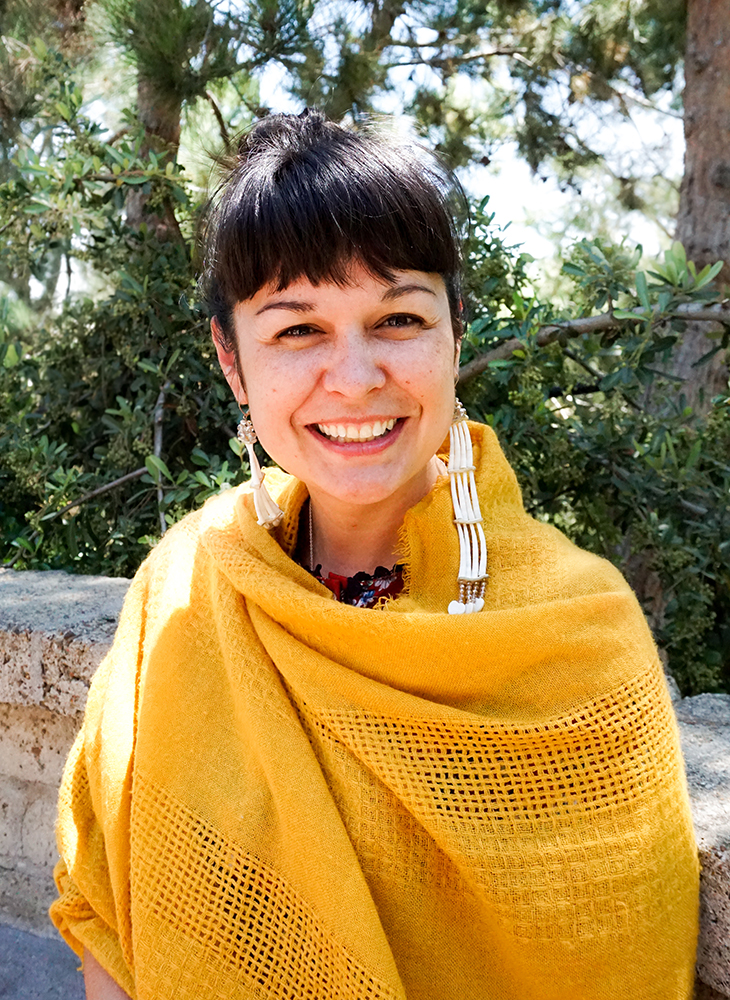 Br
Br
Debra Yepa-Pappan
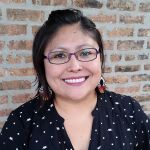 Debra Yepa-Pappan (Jemez Pueblo/Korean) is the Community Engagement Coordinator for the Native American Exhibition Hall at the Field Museum of Natural History. She welcomes Native American guests to the museum and facilitates their visits to collections. As an active member of the Chicago Native American community, she also serves as a liaison between the museum and the community both locally and nationally. She is an artist with international acclaim in the field of contemporary Native American art, and through her artwork and her work at the Field Museum she is committed to changing inaccurate representations of Native people, and advocates for the inclusion of Native first voice and perspectives. Yepa-Pappan lives in her hometown Chicago with her husband, artist Chris Pappan, and their daughter Ji Hae, who at the moment is away at college studying ballet and dance.
Debra Yepa-Pappan (Jemez Pueblo/Korean) is the Community Engagement Coordinator for the Native American Exhibition Hall at the Field Museum of Natural History. She welcomes Native American guests to the museum and facilitates their visits to collections. As an active member of the Chicago Native American community, she also serves as a liaison between the museum and the community both locally and nationally. She is an artist with international acclaim in the field of contemporary Native American art, and through her artwork and her work at the Field Museum she is committed to changing inaccurate representations of Native people, and advocates for the inclusion of Native first voice and perspectives. Yepa-Pappan lives in her hometown Chicago with her husband, artist Chris Pappan, and their daughter Ji Hae, who at the moment is away at college studying ballet and dance.
Christina Vassallo
 As Executive Director of the Fabric Workshop and Museum in Philadelphia, Christina Vassallo is redefining a living laboratory that commissions, presents, and collects experimental works of art. Previously, Christina spent six productive years as Executive + Artistic Director of SPACES, in Cleveland, where she provided creative direction and oversaw operations for one of the longest-running alternative art organizations in the country. Before relocating to Cleveland, she was Executive Director of Flux Factory, in NYC, where she set the course for an expansive art collective and residency program. She is currently completing the Chief Executive Program of National Arts Strategies, as well as a 2021 fellowship through the German Marshall Fund. Additionally, she is a member of the Arts & Culture Task Force, which is tasked with identifying policy and budgetary recommendations for Philadelphia City Council to best respond to the economic crisis created by COVID-19.
As Executive Director of the Fabric Workshop and Museum in Philadelphia, Christina Vassallo is redefining a living laboratory that commissions, presents, and collects experimental works of art. Previously, Christina spent six productive years as Executive + Artistic Director of SPACES, in Cleveland, where she provided creative direction and oversaw operations for one of the longest-running alternative art organizations in the country. Before relocating to Cleveland, she was Executive Director of Flux Factory, in NYC, where she set the course for an expansive art collective and residency program. She is currently completing the Chief Executive Program of National Arts Strategies, as well as a 2021 fellowship through the German Marshall Fund. Additionally, she is a member of the Arts & Culture Task Force, which is tasked with identifying policy and budgetary recommendations for Philadelphia City Council to best respond to the economic crisis created by COVID-19.
Abstract: The Philadelphia Collaborative Arts Consortium comprises five mid-sized organizations that have come together during a fundamental rethinking of the values underlying what museums do, who they serve, and how they function on the spectrum of wealth, privilege, and need. We see the long-term value of collaboration as a means to greater collective impact. We represent an engine of cultural vitality necessary to making Philadelphia a healthy place to live, an inspiring mecca for artists, a destination for tourists, and a desirable location for businesses. The five member organizations have come together to create a bold, entrepreneurial initiative to enhance our individual offerings and bring about social change through artistic practice across Philadelphia and in the city’s neighborhoods. Members include: the African American Museum in Philadelphia, the Fabric Workshop and Museum, Philadelphia Contemporary, Taller Puertorriqueño, and the Woodmere Museum of Art.
Charlotte Potter-Kasic
 Ch
Ch
Abstract: Like many cultural institutions, the Barry Art Museum has pivoted to an online format for our programs and interpretive materials. Interim Director, Charlotte Potter Kasic will be discussing this process- the bumps, the discoveries and what will remain after the pandemic recedes into the rearview.
Aubrey Hobart
 Aubrey Hobart is Curator of Collections and Exhibitions at the Roswell Museum and Art Center in New Mexico. She received her PhD in Visual Studies from the University of California, Santa Cruz and now divides her intellectual time between Colonial Latin American art and the contemporary art of New Mexico. Aubrey is also the host of Museum Moments, a weekly web series dedicated to exploring art and museums.
Aubrey Hobart is Curator of Collections and Exhibitions at the Roswell Museum and Art Center in New Mexico. She received her PhD in Visual Studies from the University of California, Santa Cruz and now divides her intellectual time between Colonial Latin American art and the contemporary art of New Mexico. Aubrey is also the host of Museum Moments, a weekly web series dedicated to exploring art and museums.
Abstract: The COVID-19 pandemic has caused museums around the world to reconsider their mission and audiences. At the Roswell Museum and Art Center, we have come to realize that our visitors to our exhibitions tend to be out-of-town tourists while the visitors who take advantage of our public programs and classes are generally local residents. With both audiences in mind, we’ve spent the shutdown period planning to switch three gallery spaces to multi-use spaces. However, the last year has had its challenges, too, including budget cuts, staff layoffs, and the introduction of admission fees. How can RMAC and similar institutions do more with less? Will flexibility, passion, and imagination be enough when faced with economic and political pressures?
Jane Lavino
 Jane Lavino is the Sugden Chief Curator of Education at the National Museum of Wildlife Art. Over the past 30 years she has built an award winning program reaching over 10,000 adults and children annually. She and her team of educators make fine art relevant and accessible to diverse audiences. In addition to her work at the Museum, Jane has served on panels and has taught workshops to promote arts education in Wyoming. She is a Wyoming certified K-12 art educator.
Jane Lavino is the Sugden Chief Curator of Education at the National Museum of Wildlife Art. Over the past 30 years she has built an award winning program reaching over 10,000 adults and children annually. She and her team of educators make fine art relevant and accessible to diverse audiences. In addition to her work at the Museum, Jane has served on panels and has taught workshops to promote arts education in Wyoming. She is a Wyoming certified K-12 art educator.
Jane advocates for exhibition of student artwork statewide. She served as the Wyoming Coordinator for the Federal Jr. Duck Stamp program for 16 years. Jane’s academic degrees are in visual art and cultural anthropology from Bowdoin College in Brunswick, ME. College Honors include: 3 time NCAA All American cross country runner, Maine Hall of Fame Scholar/Athlete, and membership in the academic honor society, Phi Beta Kappa.
Abstract: Bisoncast is an educational video series from the National Museum of Wildlife Art in Jackson Hole, Wyoming. The Museum is proud to welcome over 60,000 people through its doors every year, but it’s not easy for everyone to visit this place. How can the Museum’s collection reach as many people as possible? The Museum has embarked on an exciting new outreach initiative, Bisoncast, that will bring compelling stories about the Museum’s wildlife art and artists to life! Bisoncast is a free, online video series that enables a global community of art and nature lovers to connect with the Museum anytime, anywhere with internet. This new point of entry breaks down financial and geographic barriers while promoting intellectual access, equity, and inclusion.
Vicky Salías
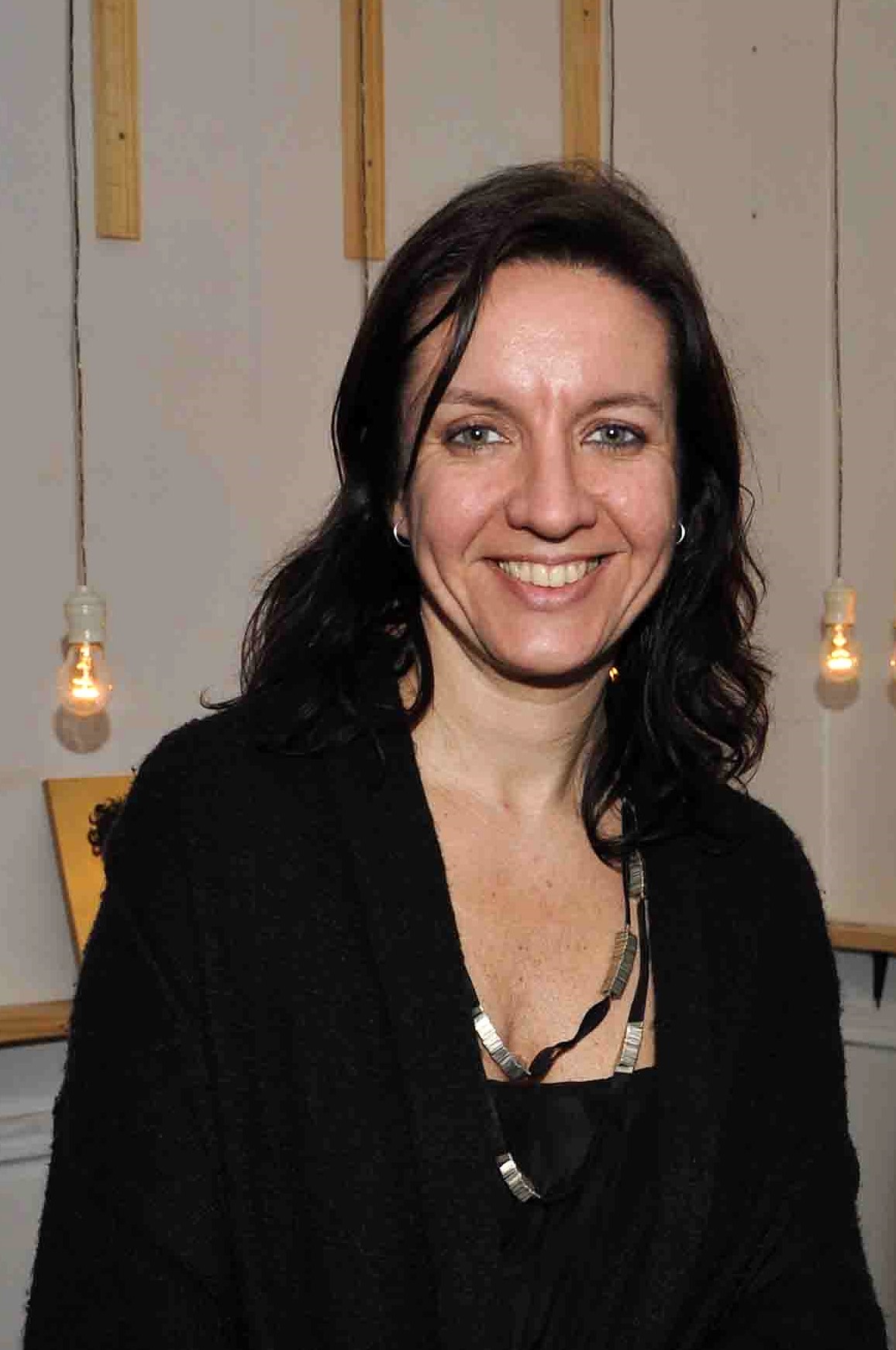 Vicky Salías is a fashion designer graduated from the University of Buenos Aires (UBA) in 1994. She holds a postgraduate Specialization in Cultural Management from the University of San Martín (UNSAM) in 2005 and is currently completing a Master's Degree in Visual Arts Curating at the University of Tres de Febrero (UNTREF). She has more than 20 years of experience in Institutional management of fashion, arts and design, organizing and curating activities and exhibitions of fashion, art and design. She is Professor of the clothing and textile design program at the UBA since 1999, and has given many workshops, talks, conferences and seminars.
Vicky Salías is a fashion designer graduated from the University of Buenos Aires (UBA) in 1994. She holds a postgraduate Specialization in Cultural Management from the University of San Martín (UNSAM) in 2005 and is currently completing a Master's Degree in Visual Arts Curating at the University of Tres de Febrero (UNTREF). She has more than 20 years of experience in Institutional management of fashion, arts and design, organizing and curating activities and exhibitions of fashion, art and design. She is Professor of the clothing and textile design program at the UBA since 1999, and has given many workshops, talks, conferences and seminars.
In 2016 she won the national public competition to become the Director of the History of Costume Museum of Argentina.
Tanya Meléndez Escalante
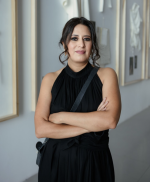 Tanya Meléndez-Escalante is senior curator of education and public programs at The Museum at The Fashion Institute of Technology. She has organized more than 100 programs for a diversity of audiences. A Fulbright scholar from 2002 to 2004, she is a contributing author to the books La comedia y el melodrama en el audiovisual iberoamericano contemporáneo and Pink: The History of a Punk, Pretty, Powerful Color.
Tanya Meléndez-Escalante is senior curator of education and public programs at The Museum at The Fashion Institute of Technology. She has organized more than 100 programs for a diversity of audiences. A Fulbright scholar from 2002 to 2004, she is a contributing author to the books La comedia y el melodrama en el audiovisual iberoamericano contemporáneo and Pink: The History of a Punk, Pretty, Powerful Color.
She curated “Eterno Femenino” (2017) in León, “Julia y Renata: Moda y Transformación” (2020) at the Museo de Arte de Zapopan, both in Mexico, and the upcoming “¡Moda Hoy! Latin American Fashion” (2022) at MFIT.
Abstract: I will talk about how since the Covid-19 lockdown in spring 2020, and all the racial and political issues that our country has faced since, The Museum at FIT's education department shifted its offerings to an online environment. We strengthened our collaboration with the museum's media department, reimagining the possibilities for learning using social media and our website. This was an eye-opening experience that provided us with an opportunity to explore new avenues to reach audiences and strengthen our commitment to presenting a diversity of voices.
A Virtual Conferencing Primer: Workshop with Sara Woodbury
February 19, 2021 | 2-3 PM ET | Virtual
6
Link to a recording of the workshop coming soon.
Academic Instagram 101: Workshop with Laura Beltrán-Rubio
November 5, 2020 | 4–5 PM | Virtual
Having a strong digital presence can support our scholarly work and research in unprecedented ways. With its integration of image and text, Instagram is a particularly effective tool in building this digital presence: it helps us showcase our academic work and build an intellectual community that goes beyond our institutions. In this workshop, Laura Beltrán-Rubio (@laurabelru) will guide us through the process of creating a strong Instagram profile and will offer some tips on how to communicate with peers, students, and a general audience on Instagram.
Laura Beltrán-Rubio specializes in the history of art and fashion in the early modern Spanish World. She is a doctoral candidate at William & 玛丽 and received her MA in Fashion Studies from Parsons School of Design. Her dissertation explores the adoption and adaptation of European fashions, their fusion with local Indigenous elements of dress, and their representation in portraits and pictures of types in the Viceroyalty of New Granada. More broadly, her research explores the construction of identity through fashion in Europe and Latin America. She is currently a Graduate Assistant at the Equality Lab, Researcher at The Fashion and Race Database, and co-director of Culturas de Moda.
Finding Home: Placemaking in the Spatial Humanities
October 23, 2020 | 3–6PM | Virtual
The home evokes a range of emotional responses, from security and comfort to confinement and danger. Yet how does space contribute to a sense of home? How do buildings, textiles, and other objects in the built environment create a domestic sense of place? What emotional and intellectual responses emerge when we critically examine the home as space and concept? This symposium will explore the concept of “home” through the multidisciplinary lens of spatial and digital humanities. Bringing together perspectives from art history, archeology, architecture, gender studies, and fashion studies, this event will explore how the spatial humanities complicate and enrich our understanding of home through digital and analog projects.
To learn more about this event, read this blog post from Graduate Assistant Sara Woodbury.
Schedule of Events
Panel 1 (3:00-4:00 pm ET): Status and Display
Speakers: Jessica Sewell (University of Virginia), David Denton (Architect and Virtual World Designer), Lindsay Garcia (Ringling College of Art and Design)
Panel 2 (4:00-5:00 pm ET): Secrecy, Violence, and Queer Spaces
Speakers: Nonny de la Pena (Emblematic Group), Angel David Nieves (Northeastern University), Alexis Bard Johnson (ONE Library and Archive at USC)
Panel 3 (5:00-6:00 pm ET): Material and Imagined Spaces
Speakers: Jeff Klee (Classical American Homes Preservation Trust), Steven Jones (University of South Florida), Chris Swan (Colonial Williamsburg)
Speakers and Abstracts
David Denton

David Denton is an architect and urban planner who has been working and experimenting in the virtual world of Second Life for the last six years. All of the images that he produces are 2-D photographs of 3-D installations built in the virtual world. Not all of the installations still exist but some do and can be accessed from any computer anywhere in the world. Upon entering one is assigned a default avatar and can literally walk and even fly through these installations.
Abstract
Th
Lindsay Garcia
Lindsay Garcia (she/her) is a socially-engaged feminist artist and a Visiting Instructor of Literature and Media Studies a Ringling College of Art & Design. She received her Ph.D. in American Studies at William & 玛丽 (2020) and her MFA in interdisciplinary art from SUNY Purchase (2014). Her art, scholarship, and pedagogy bring together antiracist, interspecies, ecocritical, queer, and feminist materialisms. She has published in Lateral and Arcadia (with more to come soon) and has exhibited her artwork from coast-to-coast and in Europe.
Abstract
菲
Find her at: www.lindsaygarcia.com | www.feministpestcontrol.com | www.queerapocalypsesolutions.com
Alexis (Lexi) Bard Johnson

Alexis (Lexi) Bard Johnson is the curator at the ONE Archives at the USC Libraries, the largest LGBTQ archive in the world. Lexi earned her PhD in Art History with a minor in Feminist, Gender, and Sexuality Studies from Stanford University in 2019. Her dissertation, “Turning the Page: Image and Identity in U.S. Lesbian Magazines,” is the first scholarly consideration of visual culture in lesbian magazines in the United States. Lexi’s essay, “The Work of Being Sexed: Andy Warhol on Drag,” appeared in Contact Warhol: Photography Without End (MIT, 2018). She also contributed to the revised edition of Art and Queer Culture (Phaidon, 2019). Johnson received her B.A. from Princeton University where she worked with Rachael DeLue and Gayle Salamon on her thesis, “Queering George Bellows and the Question of ‘Gay Art.’” Before joining the ONE Archives, Johnson worked at the Princeton Art Museum, the Whitney Museum, and the Terra Foundation for American Art.
Abstract
Johnson will discuss her project, Safer at Home, an online exhibition of objects selected from the ONE Archives Collection at the USC Libraries and hosted on Scalar. Safer at Home is an invitation to examine the many facets of home as well as what safety means and looks like for LGBTQ populations—both past and present. Through weekly posts and the collaboration of four artists of color based in LA, Johnson highlighted objects that resonated with and reflected on the idea of “safer at home.” This presentation will discuss the conceptualization and execution of the project, thinking about the power of the digital humanities to tell stories and reach wide audiences, as well as the need to create responsive art and scholarship in times of crisis.
Steven Jones
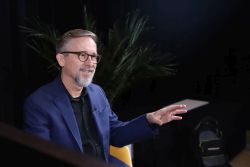 Steven Jones is DeBartolo Chair in Liberal Arts and Professor of English and Digital Humanities at the University of South Florida. Before coming to USF in 2016 he was Distinguished Visiting Professor at CUNY Grad Center, 2014-2015, and taught at Loyola University Chicago for 28 years, where he was Founding Co-Director of the Center for Textual Studies and Digital Humanities. He’s author of numerous essays and books, includingThe Emergence of the Digital Humanities (Routledge, 2014), Roberto Busa, S.J. and the Emergence of Humanities Computing (Routledge, 2016), and Cell Tower, Object Lessons series (Bloomsbury, 2020). He was Principal Investigator on the 3D-modeling and archiving project, “Reconstructing the First Humanities Computing Center,” supported by a Level II Digital Humanities Advancement Grant from the NEH (2017-2019).
Steven Jones is DeBartolo Chair in Liberal Arts and Professor of English and Digital Humanities at the University of South Florida. Before coming to USF in 2016 he was Distinguished Visiting Professor at CUNY Grad Center, 2014-2015, and taught at Loyola University Chicago for 28 years, where he was Founding Co-Director of the Center for Textual Studies and Digital Humanities. He’s author of numerous essays and books, includingThe Emergence of the Digital Humanities (Routledge, 2014), Roberto Busa, S.J. and the Emergence of Humanities Computing (Routledge, 2016), and Cell Tower, Object Lessons series (Bloomsbury, 2020). He was Principal Investigator on the 3D-modeling and archiving project, “Reconstructing the First Humanities Computing Center,” supported by a Level II Digital Humanities Advancement Grant from the NEH (2017-2019).
Abstract
在
Find him at: https://stevenejones.org
Jeff Klee
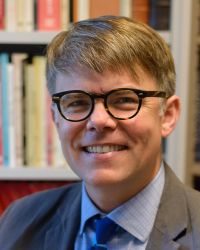 For over 16 years, Jeff worked as an architectural historian for the Colonial Williamsburg Foundation. He was recently appointed the Vice President and Senior Director of Architecture for the Classical American Homes Preservation Trust. He has taught at the University of Delaware and William & 玛丽, where he offers a class called “American Home” on the discourses and material cultures of American domestic life. In Williamsburg, he played a key role in the reconstruction of Charlton’s Coffeehouse, the Anderson Armoury and the Market House. He also supported the digital reconstruction of select buildings in the city for Virtual Williamsburg. His most recent articles include an essay on the philosophy of architectural history in the journal Buildings and Landscapes and a piece on Robert Carter III’s reading closet. He is currently at work on a book about Singleton Peabody Moorehead, one of the most prolific and longest-tenured architects of the restoration of Williamsburg. Outside CWF, he has served on the executive boards of the Vernacular Architecture Forum and the Society of Architectural Historians. For the SAH, was a developer and long-time editor of SAHARA, the society’s digital visual resource collection. Jeff has degrees from Yale and the University of Delaware, where he completed his dissertation on Boston’s Beacon Hill neighborhood.
For over 16 years, Jeff worked as an architectural historian for the Colonial Williamsburg Foundation. He was recently appointed the Vice President and Senior Director of Architecture for the Classical American Homes Preservation Trust. He has taught at the University of Delaware and William & 玛丽, where he offers a class called “American Home” on the discourses and material cultures of American domestic life. In Williamsburg, he played a key role in the reconstruction of Charlton’s Coffeehouse, the Anderson Armoury and the Market House. He also supported the digital reconstruction of select buildings in the city for Virtual Williamsburg. His most recent articles include an essay on the philosophy of architectural history in the journal Buildings and Landscapes and a piece on Robert Carter III’s reading closet. He is currently at work on a book about Singleton Peabody Moorehead, one of the most prolific and longest-tenured architects of the restoration of Williamsburg. Outside CWF, he has served on the executive boards of the Vernacular Architecture Forum and the Society of Architectural Historians. For the SAH, was a developer and long-time editor of SAHARA, the society’s digital visual resource collection. Jeff has degrees from Yale and the University of Delaware, where he completed his dissertation on Boston’s Beacon Hill neighborhood.
Abstract
Our public health emergency has exposed the contours of domestic life in ways that are both mundane and revelatory. The challenge of remote work and remote schooling has been, for the most devoted digital apologists, one of access, to be solved with wifi broadcast throughout American cities and laptops distributed to every student. Whether or not remote learning and remote work can be effective, they newly expose domestic interiors in ways that invite critical consideration.
It is a social media sport to parse the videoconferencing environments of celebrities and public figures, scrutinizing bookshelves over speakers’ shoulders in search of embarrassing taste in literature or signs of reactionary politics through a catalog of book titles. But that same observational work can also be done by co-workers and fellow students who have new access to their peers’ domestic lives. For all who use these forms of communication, this exposure confers vulnerability; for those with precarious and marginal dwelling arrangements, such exposure magnifies those conditions, both revealing and compounding inequality.
These observations will be familiar to anyone who has participated in a remote class with a diverse student body. What may be less obvious are the ways in which they invite reflection on the limits of virtual spaces. For decades, digital humanists have explored the ways in which computer models can do important educational work: rendering lost spaces newly visible through projects like Virtual Rome or Virtual Williamsburg; or rendering inhospitable spaces newly and widely accessible. Such projects can be a useful substitute for firsthand experience but without signs of use, they keep their subjects at an enormous interpretive distance. Modelers acknowledge this failing of the computer model when they incorporate, often laboriously, evidence of implied activity: a meal being prepared in a fireplace; a worn tabletop; peeling wall paint.
This limitation can be disguised but not eliminated. The fact of its portability and its virtuality is simultaneously a strength and a weakness of the computer model as a pedagogical tool. It is because it can be distributed so freely, and viewed so widely, that it can never be occupied. This lack of utility might be seen as a minor failing but, as the interpretation of personal space on remote teleconferencing emphasizes, spaces only acquire meaning through performance. It is the quotidian messiness of ordinary use and the detritus of the everyday that confers significance on architecture, not the demands of a designer or the proscription of the critic. Quarantine allows us to recognize with poignant clarity the ways in which architecture, without experience, is only geometry.
Angel David Nieves
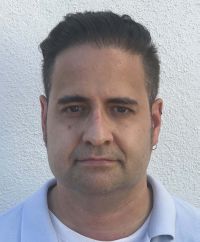 Dr. Angel David Nieves is Professor of Cultures, Societies, and Global Studies, Professor of History, Adjunct Professor of English, and Director of the Public Humanities Program at Northeastern University. Dr. Nieves earned his Ph.D. in the History of Architecture and Urban Development and Africana Studies from Cornell University. Prior to joining Northeastern, he was a Professor of History & Digital Humanities in the College of Arts and Letters (CAL) at San Diego State University. He is the author and co-editor of two historical monographs, including An Architecture of Education: African American Women Design the New South (University of Rochester Press, 2018) and ‘We Shall Independent Be:’ African American Place Making and the Struggle to Claim Space in the U.S.(www.apartheidheritages.com. He is also currently working to develop the Social Justice Studio (SJS) as part of Northeastern’s commitment to community-engaged interdisciplinary scholarship and social justice-based research.
Dr. Angel David Nieves is Professor of Cultures, Societies, and Global Studies, Professor of History, Adjunct Professor of English, and Director of the Public Humanities Program at Northeastern University. Dr. Nieves earned his Ph.D. in the History of Architecture and Urban Development and Africana Studies from Cornell University. Prior to joining Northeastern, he was a Professor of History & Digital Humanities in the College of Arts and Letters (CAL) at San Diego State University. He is the author and co-editor of two historical monographs, including An Architecture of Education: African American Women Design the New South (University of Rochester Press, 2018) and ‘We Shall Independent Be:’ African American Place Making and the Struggle to Claim Space in the U.S.(www.apartheidheritages.com. He is also currently working to develop the Social Justice Studio (SJS) as part of Northeastern’s commitment to community-engaged interdisciplinary scholarship and social justice-based research.
Abstract
倪
Jessica Ellen Sewell
 Jessica Ellen Sewell, Ph.D., is an undisciplined academic, currently an Associate Professor of Urban and Environmental Planning, Architectural History, and American Studies and Co-Director of the Center for Cultural Landscapes at the University of Virginia. She is the author of Women and the Everyday City: Public Space in San Francisco, 1890-1915 (University of Minnesota Press, 2011) and is currently working on a book on gender in vernacular architecture, a book on the masculine fantasy of the bachelor pad, and a digital urban cultural landscapes guide to Suzhou, China.
Jessica Ellen Sewell, Ph.D., is an undisciplined academic, currently an Associate Professor of Urban and Environmental Planning, Architectural History, and American Studies and Co-Director of the Center for Cultural Landscapes at the University of Virginia. She is the author of Women and the Everyday City: Public Space in San Francisco, 1890-1915 (University of Minnesota Press, 2011) and is currently working on a book on gender in vernacular architecture, a book on the masculine fantasy of the bachelor pad, and a digital urban cultural landscapes guide to Suzhou, China.
Abstract
This presentation is entitled "Dream House: Gendered Fantasies of Home." The impossible dream house has been enabled by collective fantasies constructed for varying reasons by electricity and building companies, government agencies, popular films and TV, manufacturers, magazines, and social media. While we are most familiar with dream houses (like Barbie’s) focused on a heteronormative female homemaker, alternative dreams such as the bachelor pad complicate the gendering of our collective acquisitive and familial fantasy of home.
Chris Swan
Ch
Twitter Workshop with Ravynn K. Stringfield: "Cultivating Your Voice in 280 Characters"
September 25, 2020 | 2-3PM | Virtual
Have you ever thought about starting a Twitter account, but don’t know where to begin? Or do you have an account and would like to become a more active user? Then this virtual workshop is for you! Ravynn K. Stringfield (@RavynnKaMia) will facilitate a discussion on developing a professional social media presence. Topics will include creating and maintaining your Twitter presence, networking online, and addressing internet safety and toxicity while building community.
Ravynn K. Stringfield is a Ph.D. candidate in American Studies and Africana Studies graduate affiliate at William & 玛丽. She is a writer, scholar, and digital human(ist) whose dissertation focuses on Black women and girls as creators and protagonists of new media narratives that are futuristic, fantastic and/or digital in nature. Her writing has appeared in ZORA, Shondaland, Greatist, and Catapult. She is the founder of the blog Black Girl Does Grad School, and co-founder of the podcast Dreaming in the Dark with Bezi Yohannes. To learn more about her work, visit her website.
Siva Vaidhyanathan talk on Google, Amazon, et al and the Battle for Control of Our Bodies
乔
Lauren Klein: "Data Feminism"
作为
Lauren Klein: Breakfast Conversation
Graduate students and others are invited to a meet-and-greet with Lauren Klein as we breakfast and converse one-on-one about data science and ins-and-outs of academia. With Matthew Gold, she also edits Debates in the Digital Humanities. This is a great opportunity to talk with her about scholarship and publication in academia.
Lauren Klein: Data Visualization Seminar
Come join us for a lunch seminar on data visualization. Professor Klein is an expert on data visualization and has a forthcoming book, Data by Design: An Interative History of Data Visualization, 1786-1900, on the subject. She speaks to both the function of data visualization in the humanities and method in scholarly knowledge production. Participants are encouraged to bring their own work and data to see how data visualization might fit into their research.
Website Building Workshop
Come join us on December 6, 2019 where Professor Liz Losh will facilitate a workshop to guide students through the process of build their own website from reclaim hosting. This workshop is designed to help students and faculty develop a professional and digital presence as well as create a site to showcase our academic work.
Abstract Writing Workshop, November 22, 2019
Do you want to apply to a conference or submit a paper proposal, but don't where to start? In conjunction with the Chesapeake Digital Humanities Conference (CDHC), hosted by W&M on Feb. 21, 2020, come join us for a writing workshop where we will break down the process of drafting an paper abstract. This workshop is specifically gear towards any and all undergraduate students interested in learning how to craft a project proposal for this and future CFPs. We will use the guidelines of the CDHC to model, but please feel free to bring your own call for papers to work from.
Dino Felluga: "Supporting Human Online Research and Education: A Workshop on New Tools," November 13, 2019
SHORE is the imagined extension of The Central Online Victorian Educator at http://covecollective.org into other fields and subject areas. Prof. Felluga, the general editor of COVE, will explain the basic principles of COVE, which are also articulated in the following, recently published article: https://doi.org/10.1093/jvcult/vcz027. He will showcase the tools (a classroom space, a map-builder, a timeline-builder, a gallery-builder and an annotation tool), followed by a “live build” with workshop participants.
Jasmeen Patheja Lecture, November 5, 2019
Please join us in welcoming Jasmeen Patheja to the W&M community. Jasmeen Patheja is an artist, and also the founder director of Blank Noise, a community of Action Sheroes/ Heroes/ Theyroes; citizens, persons across India and beyond, united to eradicate sexual, gender based violence. Patheja initiated Blank Noise in response to street harassment, in 2003, as a graduation project, at a time when sexual violence in public spaces was viewed as a non issue.
To learn more about Jasmeen Patheja, click the following hyperlinks: contact@jasmeenpatheja.com, https://www.jasmeenpatheja.com/, and TED Talks India "Everyone deserves to be safe."
Twitter Workshop: "Cultivating your Voice in 280 Characters,” October 23, 2019
Ever thought about setting a twitter account, but don’t know where to start? Or do you have an account and you want to become an active user? Then this is the workshop for you. Ravynn Stringfield (@RavynnKaMia) will facilitate a discussion on developing a professional social media presence. Among the topics covered will be creating and maintaining your twitter presence, networking online, and addressing internet safety and toxicity while building community. It is encouraged to bring a device (tablet, laptop, etc.) and questions! To learn more about, check out Ravynn's blog and her workshop.
Stefanie Wuschitz: Lunch & Learn and Hands-On Workshop, May 2, 2019
Stefanie works at the intersection of art, research and technology, with a particular focus on feminism, open source technology and peer production. She holds degrees from University of Applied arts Vienna, New York University, University of Technology Vienna and has held positions and worked on projects at Vienna University of Technology, University of Applied Arts Vienna, University of Michigan, and University of Applied Arts Vienna. To learn more about Stefanie, check out her bio, projects & more; Mz* Baltazar’s Lab; TEDx on Mz* Baltazar's Lab; video on Vimeo: Rumah.
Disability and Digital Learning Environments Workshop, April 12, 2019
Jessica Cowing, Ph.D. candidate from American Studies, lead a discussion of accessibility in academia. This workshop provides an overview of best practices for generating broad access in academic spaces ranging from courses to conferences.
Elizabeth Maddock Dillon and Alanna Prince, Early Caribbean Digital Archive, April 15-16, 2019
Elizabeth Maddock Dillon and Alanna Prince explore the theories and practices of the Early Caribbean Digital Archive, with a focus on the deeply colonial nature of existing archives and strategies for decolonization.
Digital Humanities Symposium: "My Mother was a Computer," November 2, 2018
To commemorate the 100th anniversary of coeducation, the 2018-2019 digital humanities symposium built on the existing body of work created by scholarly collectives studying feminism and technology. In consultation with the Executive Committee of the program in Gender, Sexuality, and Women’s Studies and faculty on the Ad Hoc Committee for Engineering and Design Opportunities at William & 玛丽, the Equality Lab designed a symposium with three major themes: 1) gender and programming, 2) gender and gaming, and 3) gender and online community. The name of the symposium echoes the wording of Anne Balsamo’s famed account of her maternal family history when “computers” were human.










